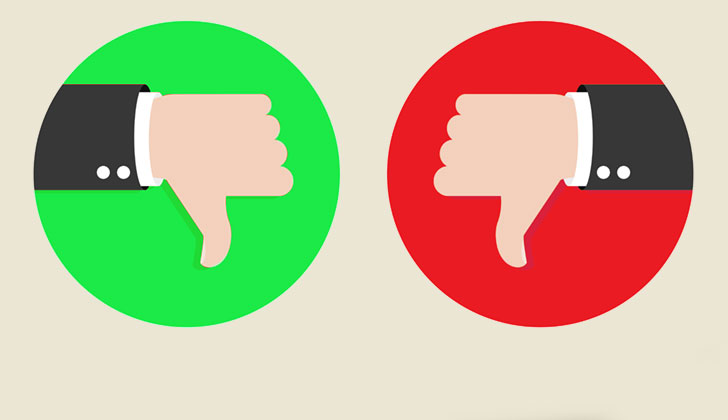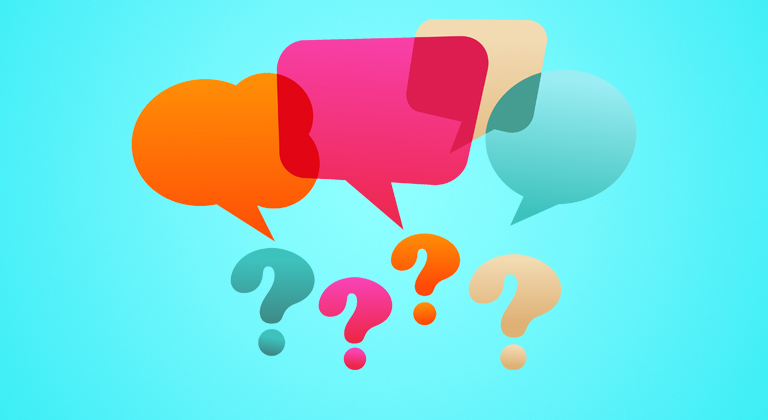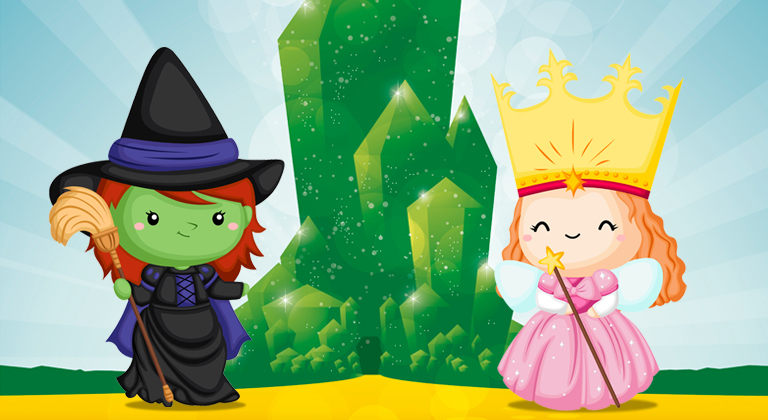The Difference Between Bad Reviews and “Bad” Reviews
Everybody’s opinion differs, which means that even when writing a review that’s critical of a book, you should try to explain what you didn’t like about it – or what you did like if it’s a positive review. This is because not all ratings are created equal – and what one person hated about a book another reader might actually like. It’s also worth remembering the impact and power you have as a reviewer – and whatever you feel about a book, a review should always be based on the book itself, and not written as a way to take a stab at the author who wrote it. We’ve discussed what goes into a good review in the past, but let’s look at it from the other side this time.
While no author wants a bad review on their book, most will eventually get them – some more than others. Yet, just because a review is negative, it doesn’t mean there isn’t value to it – at least some of them.
Unfortunately, not all negative reviews are created equal; and that’s what determines whether a review is a bad review – referring simply to a negative review of a book – or a “bad” review – meaning that the review itself is an issue.
There’s nothing wrong with writing a bad review. Reading, like writing, is deeply subjective. What one person loves about a book, another person may hate. But there is something wrong with writing “bad” reviews – reviews that fail to deliver what a potential reader wants to know – and that’s what we want to discuss.
Overall, reviews tend to fall into one of three categories.
- Useless or nonexistent feedback
- Trolling or abusive
- Useful or constructive feedback about why the reader didn’t like the book
Out of those three, the first two fall into the “bad review” category – even if their overall rating is positive (more likely in #1 than #2). Only the third category is something the author can use to improve themselves, which means as a reader, those are the types of reviews you should be aiming to write.
After all, if you took the time to leave a review, hopefully you did it because you’re hoping to be helpful to other potential readers or the author, and the only way you can do that is by writing a useful review, whether it’s positive or negative.
Avoid Useless or Nonexistent Feedback
“I didn’t like it.”
As negative reviews go, this type of comment is an example of some of the most unhelpful, vague and essentially useless around. But if you think that this advice doesn’t apply to you because you write similarly positive ones, think again.
“I loved this book!”
I have news for you, aside from the rating, this example isn’t much better.
Obviously, there isn’t an author around that wouldn’t prefer the second example, but only because of the star rating. Ratings aside, the reviews are essentially identical in their uselessness.
The issue is that neither review gives potential readers, or the author, any clue as to what the reviewer liked or didn’t like about the book, which means they may as well not have bothered leaving a review at all.
After all, there are really two main purposes to a book review:
- Help potential readers decide whether they should buy and read the book themselves
- Provide useful feedback to the author about their work
Again, ratings aside, do either of those reviews do those things?
No, and for essentially the same reason: Lack of detail or context.
The reason why those are examples of “bad” reviews is that they both lack any detail about what was liked or not liked, or any context with which that could be determined.
A review left on the Internet, especially on a site like Amazon, is relatively anonymous. There is very little chance that the reader of any given review knows anything about the reviewer, so how would they know if they have the same tastes? Everyone likes different things – believe it or not, there are real people who order pineapple on their pizza – so just because some random Internet stranger likes or dislikes something doesn’t mean you’ll like or dislike it.
And from an author’s perspective, if someone doesn’t like their book, wouldn’t it be useful to know why? Was it the editing? The characters? The plot? The ending? Was it the fact that the main character’s name was Doug, which was also the name of the reviewer’s ex-husband and she never gives a positive rating to any book with a main character named Doug?
Just because a review is negative, doesn’t mean it can’t also be useful. Consider this actual one-star review that an author once received for one of their early erotic short stories.
“This book is disgusting. The situations the heroine finds herself in are filthy and degrading and the language used is extremely colorful. The story is disgustingly explicit.”
While this review was still a bad, or negative review, it wasn’t a “bad” review because it provided details about what the reader didn’t like about the book. And because everyone is different, other readers could then use that information to decide if those same issues would bother them.
Case in point, a later reader of that same book commented on the above review with: “Thank you – I wasn’t going to buy this book until I read this review, and after purchase I’m happy to report the book did not disappoint.”
That’s why the context of why you don’t like a book is so important to include in a review. One reader’s fertilizer can be another reader’s rose.
From an author’s perspective, the comments left in a review can be used to determine if changes need to be made to future books. They’re free to decide whether or not to listen to those criticisms, of course, but it’s especially important in cases where many reviewers have the same sort of issues with a particular book – a fact that they can only determine if those reviews provide details on what those issues are in the first place.
But that doesn’t mean each review has to be a book report of its own.
While some readers go into great detail – which is greatly appreciated by authors – not every reviewer wants (or needs) to write a long review, and that’s fine. But writing “I didn’t like it” doesn’t help anyone, and with just a bit of extra effort you can write a short review that still provides useful information to potential readers.
Consider these single star review examples we’ve seen.
- “I didn’t like it because the book was poorly edited and formatted and it made it difficult to enjoy reading it.”
- “I didn’t like this book because it’s supposed to be a romance story, but it doesn’t have a happy ending.”
- “This book was great up until the end, but I was really disappointed that it left things on such a cliffhanger!”
As you can see, these three different reviews of three different books all rated it ‘the same’ but a potential reader wouldn’t judge all those reviews equally.
The first review, of course, would tell almost everybody to steer clear of a badly-edited book. Most romance readers would be disappointed by the lack of a HEA in the second book, but others – fans of books like Me Before You – might like a tear-jerker. And while a reader that hates an unresolved story would know to avoid the third book, those that don’t mind cliffhanger endings would be able to quickly discount this review (and instead, focus on how the book was “great” otherwise).
Don’t Be Abusive or a Troll
Regardless of anything else, there are certain types of reviews that are never okay.
A very small minority of people use reviews for purposes that are the opposite of helpful or useful. Some examples of this include posting reviews of books they haven’t read, simply because they dislike the author or the subject material. This can impact celebrities – like the hundreds of one star reviews Hillary Clinton’s book What Happened received, many of which are unverified, and attack her as a person rather than the contents of her book. But it can, and does, happen to anyone.
As a reader, you’re entitled not to like a book – you’re even entitled to object to its subject material. However, you’re not entitled to write a review of it unless you’ve read it (in fact, this violates Amazon’s Terms of Service), nor should you ever post a review that attacks the author personally.
Likewise, and this is generally less deliberate, it’s unfair to post spoilers of a book in your review; even if the review is positive. A lot of books rely on a big, satisfying twist at the end, and if a potential customer reads about it before clicking ‘Buy Now’ then they might not buy it at all.
So, be cognizant and respectful of the level of information you share about a book. And it’s not just big twists that can be spoilers. Anything that isn’t obvious at first, or that is explained later in the story should be avoided when writing your review.
Another thing a reviewer should never do is copy the reviews of others. Unfortunately, we’ve seen this happen – obvious cut and paste reviews, often word for word. This is worse than a one-line review, whether it’s positive or negative, as it can actually get both you and the author into trouble with Amazon (who’ll red flag such a review as potentially fraudulent, remove it, and potentially block you or the book from further reviews).
In general, a reviewer is entitled to an enormous amount of gratitude and respect for their opinion… as long as they aren’t being a troll and are giving their honest opinion without trying to be overly mean-spirited in how they deliver it.
Conclusion
The great thing about the internet is that it’s allowed anyone with a voice to be heard, and that includes allowing for a greater variety of opinions when it comes to reviews – whether it be for books, movies, or vacuum cleaners. Instead of being confined to only hearing opinions of a chosen few professional reviewers, we’re able to hear from people more like us – with similar likes or dislikes.
Unfortunately, the Internet has also given rise to a culture of mean-spiritedness borne through the relative safety and anonymity provided by being able to say whatever you want behind a screen – isolated from the potential repercussions of your words coming back to haunt you – at least not your real you – and some people go to great lengths to keep their online and personal personas separate. However, this isolation also tends to mask the fact that there are actual people on the other end of those screens – with real feelings.
It’s easy to imagine an author as someone living in an ivory tower, pecking away at their keyboard for brief periods in between cashing their million-dollar checks or running to fancy parties to rub elbows with the latest celeb cast as the lead in the movie adaptation of their latest hit novel.
But the reality is FAR more mundane for most authors – especially the self-published ones. These are regular people, like you and me, with families and mortgages and sometimes second (or third) jobs. When you write a spiteful or mean-spirited review, their feelings are hurt just as badly as yours would be if someone in your life said those same things to you about whatever you’re passionate about.
So, by all means, write honest reviews with the ratings that you feel the book deserved. But be careful about how you word it with an aim to be helpful rather than hurtful. Lay out what you liked or didn’t like, with constructive criticism that the author can use to improve, instead of just ranting and raving at an internet stranger because you’ve had a bad day.
Over all, authors love and truly appreciate the people that take the time to leave genuine reviews, and the intention of this post isn’t to criticize or try to police behavior beyond giving a few tips and guidelines that really only apply to a small subset of reviewers.
The truth is, every time you take a moment to write a review, it helps an author and a potential reader in so many ways. It can sometimes seem like an unappreciated job – especially given how Amazon are making it increasingly difficult even for honest, well-intentioned customers to post reviews – but every honest review, especially those with detail and context, make a huge difference.
On behalf of Hidden Gems, authors everywhere, and any customer who’s ever bought a book based off a review – thank you!












Is it OK to post the same review on Amazon and Goodreads?
Sure, that’s fine.